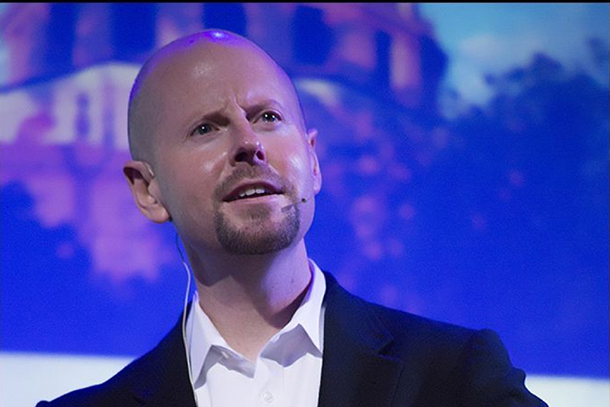Every 20 seconds, someone in the world loses a limb to diabetes. David G. Armstrong, DPM, PhD, is working to change that.
Armstrong, professor of clinical surgery at the Keck School of Medicine of USC, joined the faculty in August. He is an internationally lauded diabetic wound-care expert, the first podiatric surgeon to join the Society for Vascular Surgery and the Royal College of Physicians and Surgeons of Glasgow, and the youngest person ever inducted into the Podiatric Medicine Hall of Fame.
Elevated blood sugar levels put people with diabetes at higher risk for gradual nerve damage, or neuropathy. As Armstrong puts it, they can “lose the gift of pain.” Without careful nightly checks, someone with neuropathy can have a wound or ulcer on the bottom of the foot and not realize it until the wound becomes severely infected.
Amputation of the foot or lower limb is often the result, but Armstrong believes that a combination of next-generation wound healing techniques and state-of-the-art vascular therapy is almost always a better solution for the patient. Podiatric surgeons and vascular surgeons tend to make an ideal team for limb salvage — a model colloquially known as “toe and flow” — because people with diabetes are prone to peripheral artery disease (PAD) as well as foot ulcers. Working together, they can often preserve the patient’s limb and thus his or her ease of mobility. Armstrong is off to a running start and is already working closely with fellow vascular division surgeons Christian J. Ochoa, MD, assistant professor of clinical surgery, and Vincent L. Rowe, MD, professor of clinical surgery at the Keck School and director, pediatric vascular surgery at Children’s Hospital Los Angeles.
“We have a world-class vascular surgery team here,” Armstrong said. “They provide the irrigation; I provide the landscaping.”
Armstrong is the founder and co-director of the Southwestern Academic Limb Salvage Alliance (SALSA), an organization that already operates at colleges and universities in more than a dozen countries. Part of his mission is to expand the organization further, with Keck Medicine now the primary hub. Over the next generation, the team hopes to reduce and eventually eliminate preventable diabetes-related amputations.
— Lex Davis


